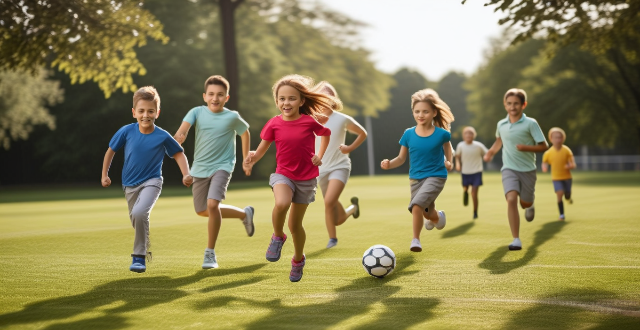The article explores how sports research and development (R&D) contribute to various dimensions of health and wellness. It discusses the improvements in physical health, such as enhanced fitness levels, weight management, and injury prevention, that can be achieved through sports R&D. Additionally, it highlights the mental health benefits, including stress reduction and cognitive function enhancement, that can result from engaging in sports activities. Finally, the article emphasizes the social well-being aspects, such as teamwork, social skills, cultural exchange, and community building, that sports R&D can promote. Overall, the article concludes that sports R&D plays an integral role in creating healthier societies and supports active and fulfilling lives for people worldwide.

The Contribution of Sports Research and Development to Overall Health and Wellness
Introduction
Sports research and development play a crucial role in enhancing overall health and wellness. By understanding the physiological, psychological, and sociological aspects of physical activity, researchers can design programs and technologies that promote healthier lifestyles. This article explores how sports R&D contributes to various dimensions of health and wellness.
Physical Health Improvements
*Enhanced Fitness Levels*
- Aerobic Capacity: Sports research has shown that regular aerobic exercise increases cardiovascular endurance, reducing the risk of heart disease.
- Muscular Strength: Through resistance training studies, it has been found that stronger muscles support better posture and joint health, preventing injuries.
- Flexibility: Research into stretching techniques reveals that improved flexibility reduces the likelihood of muscle strains and improves range of motion.
*Weight Management*
- Calorie Burn: Studies on the caloric expenditure of various sports activities help individuals choose effective workouts for weight loss or maintenance.
- Metabolism Boost: Regular participation in sports activities has been linked to increased metabolic rates, aiding in long-term weight management.
*Injury Prevention*
- Biomechanics Analysis: Research into the biomechanics of sport can lead to the development of safer training methods and equipment designs.
- Rehabilitation Programs: Advanced understanding of injuries through sports medicine research results in more effective rehabilitation protocols.
Mental Health Benefits
*Stress Reduction*
- Endorphin Release: Physical activity is known to release endorphins, which act as natural stress relievers.
- Meditative Effects: Some sports, like yoga and tai chi, have been studied for their meditative qualities, which reduce anxiety and improve mood.
*Cognitive Function*
- Brain Plasticity: Research indicates that regular physical activity can increase neurogenesis, improving memory and cognitive function.
- Learning Abilities: Studies suggest that students who engage in sports tend to have better attention spans and academic performance.
Social Well-being
*Teamwork and Social Skills*
- Group Dynamics: Sports provide an environment for learning teamwork, leadership, and conflict resolution skills.
- Community Building: Sporting events foster a sense of community among participants and spectators alike.
*Cultural Exchange*
- Olympic Values: The Olympic Movement's values of excellence, friendship, and respect promote cross-cultural understanding through international sporting events.
- Global Connectivity: As sports become increasingly globalized, they offer opportunities for cultural exchange and diplomacy.
Conclusion
The contributions of sports research and development to overall health and wellness are multifaceted. From enhancing physical fitness and preventing injuries to promoting mental well-being and social connectedness, sports R&D plays an integral role in creating healthier societies. By continuing to invest in this field, we can look forward to even more innovative solutions that support active and fulfilling lives for people around the world.